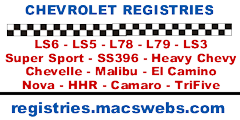1966 SS 396
|
|
|
|
|
|
|
|
|
The new for 1966 SS 396 was available in both sport coupe (17) and convertible (67) models and the 396 cid, 325hp Mark-IV engine was the base engine. Gone was the Malibu SS with either a I6 or V8 engine in the U.S, Canada still offered a Malibu SS. The Fisher Body style numbers 13817 & 13867 and VINs beginning with 13817 & 13867 for all 1966 SS 396 Chevelles. As with all years (with the exception of the 1972 model year) of Chevelles, the VIN only depicts the base engine and does not indicate any optional engine. The base 396 engine was the RPO L35 325hp engine with two optional 396 engines, the L34 360hp version and an L78 375hp version.
Although the El Camino could be ordered with any 396 engine, there are no SS 396 1966 El Caminos; no SS 396 badging, no Super Sport hood. A 396-optioned El Camino would have the 396 Turbo-Jet flags on the front fender however.
Contrary to what many think, bucket seats, gauges, and 4-speeds were not standard equipment. A vinyl front bench seat, no gauges (except speedometer, clock, and fuel gauge), and a 3-speed heavy duty, floor shifted, Borg-Warner transmission were standard with the SS 396.
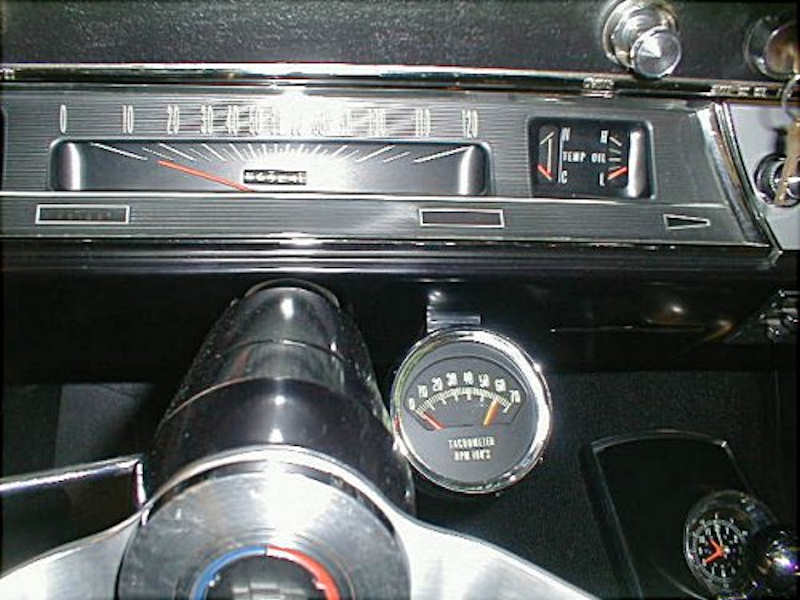
RPO U14 Special Instrumentation was optional on all I6 and V8 Malibu
and SS 396 Chevelle sport coupes, convertibles, and El Caminos. This
option included tachometer (V8 only), mechanical oil pressure gauge,
amp gauge, and water temperature gauge. The tachometer could be
ordered without the gauges under RPO U16 on any V8 Chevelle series.
There is no such thing as "SS gauges."

Three versions were available in the SS 396 series, a 0-6000 RPM range with the redline at 5000 for the base 396/325hp, a 0-7000 RPM range with the redline at 5500 for the optional L34 396/360hp and a 0-7000 RPM range with the redline at 6000 for the L78 396/375hp engine. Only the 0-6000 RPM range was available for the 283 and 327 engines on non-SS 396 Chevelles.
Distinctive blacked out grille, Super Sport trim, a special SS 396 hood with faux twin scoops, SS 396 emblems on the grille and rear cove, Super Sport script on the rear quarter panels, and ribbed rocker panel and quarter panel moldings.
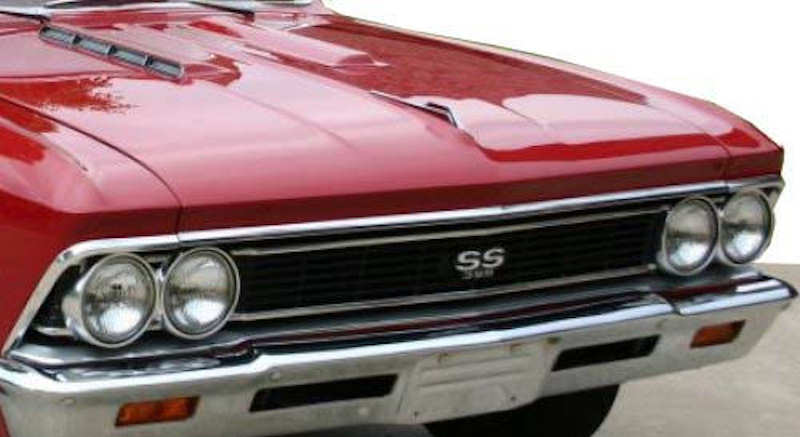
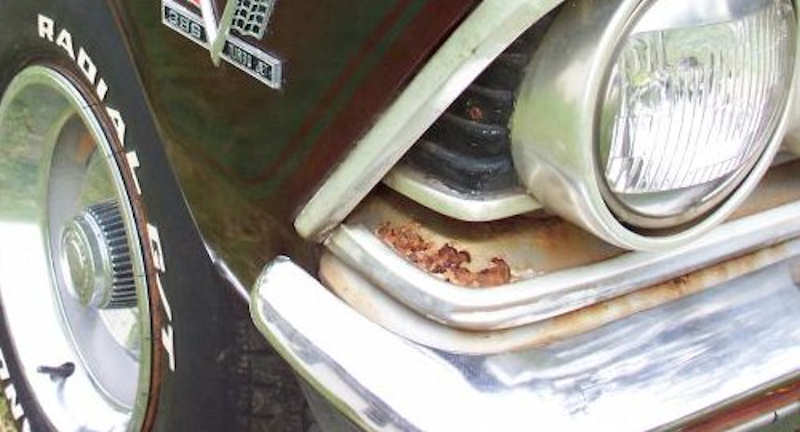
Note special SS 396 hood with twin faux scoops, blacked-out grille with
SS 396 emblem, blacked-out headlamp bezels, and Argent Silver bumper
filler panel.
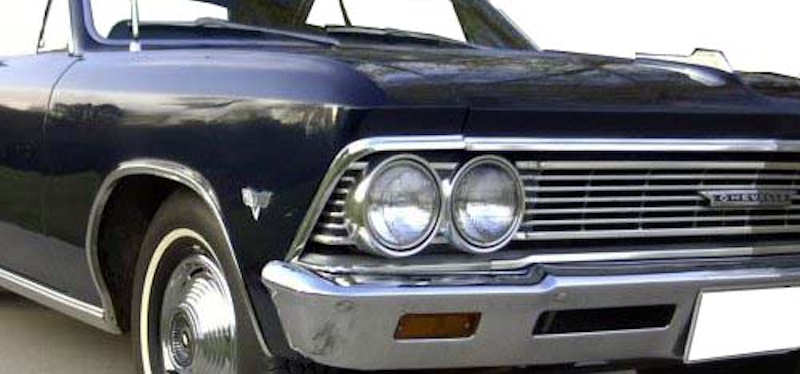
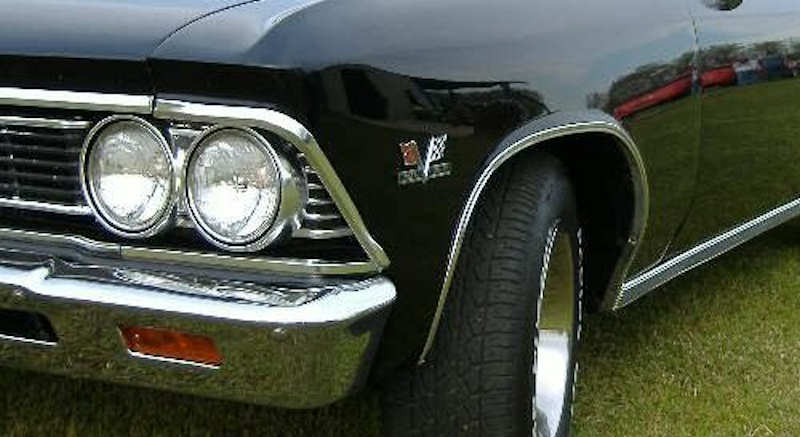
Correct SS 396 grille extensions are not readily available but 300/300
Deluxe/Malibu extensions are the same with the exception of the bright
horizontal bars. These should be blacked-out on an SS 396 but many people
fail to do so. Upper photo here is a Malibu.


There is some debate as to whether the rear cove was blacked-out or
body color. Early Atlanta cars are known to have had blacked-out panels
but due to demand and costs this practice was stopped at Atlanta early
the production year. Whether other plants followed suit or not is debatable.
It is known many dealers blacked-out the rear cove because the cars
sold better. See story here.
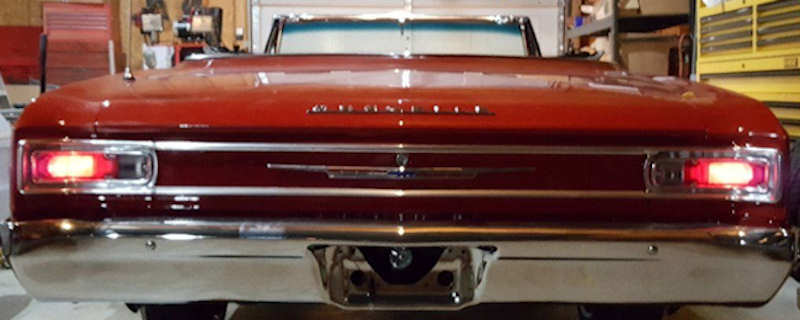
Compare a Malibu rear cove with centered emblem and C_H_E_V_E_L_L_E
script on trunk lid.
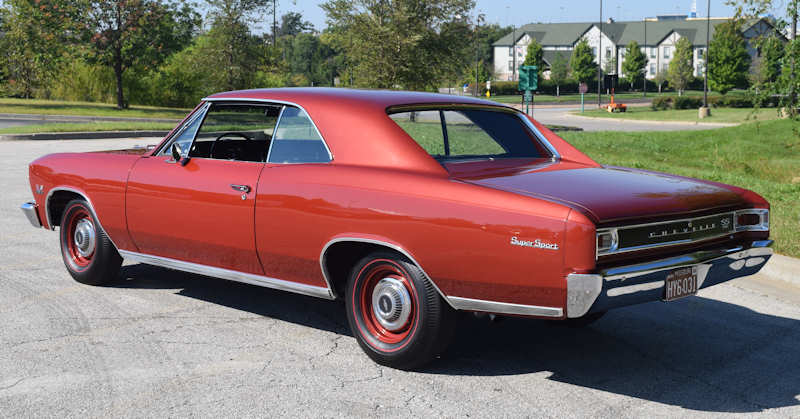
Note the ribbed lower trim pieces that extend behind the rear wheel
well, the Super Sport rear quarter panel script and the 396 Turbo-Jet
front fender emblems. The SS 396 came standard with steel wheels, redline
tires, and hub caps. When no optional wheel covers were ordered, the
wheel was painted the lower body color. There were no special SS 396
wheel covers in 1966.
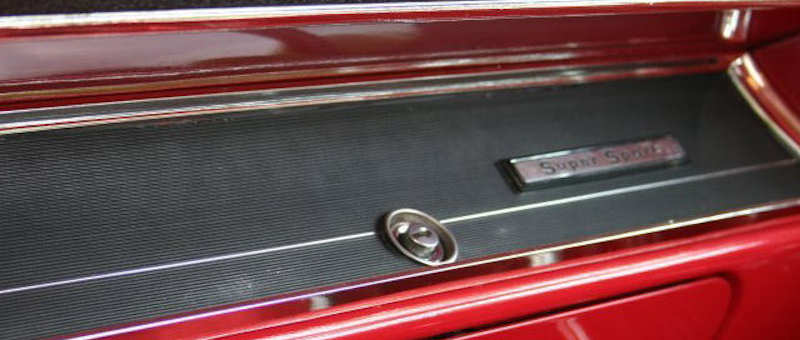
The 1966 SS 396 dash received a Super Sport emblem on the bezel above
the glove compartment door which was simply glued over the existing
Malibu script.
Canada produced a Malibu SS in 1966 and early 1967. This was a standard 135/136xx Malibu with a special package called The Sports Option under RPO A51. This Malibu SS continued to use the Malibu SS quarter panel trim from the 1965 Malibu SS but could be ordered with a 6-cylinder, 283 & 327 V8, or the 396-cid 360hp engine. See The Obscure Malibu SS of 1966/67 for more specifics on this Canadian option.
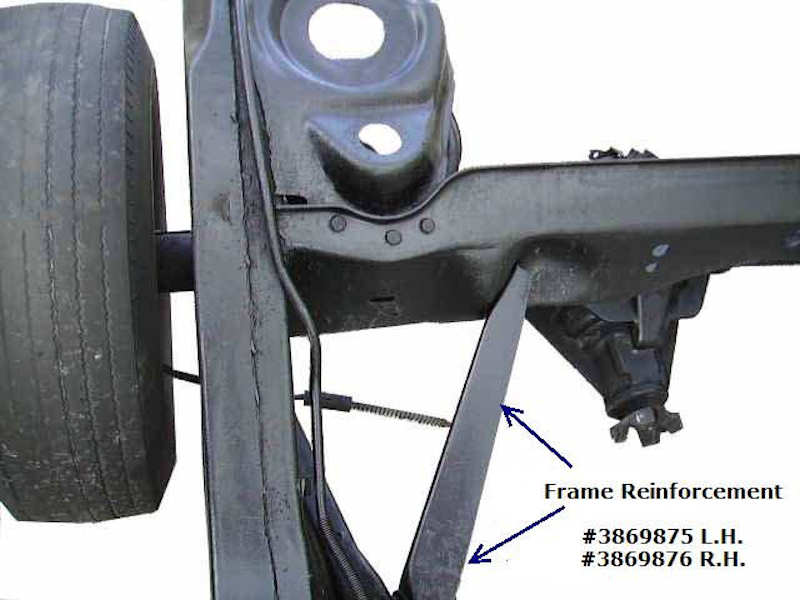
All SS 396 Chevelles came with a 12-bolt rear end but Positraction was
still an option; an open rear end was standard. However, a 12-bolt rear
end, as well as Positraction, was available on non-SS 396 Chevelles
as well so the presence of a 12-bolt (with or without Positraction)
is not an indication of a 1966 SS 396 Chevelle. All SS 396 Chevelles
also came with rear frame reinforcements but could easily be added to
any Malibu coupe or convertible.
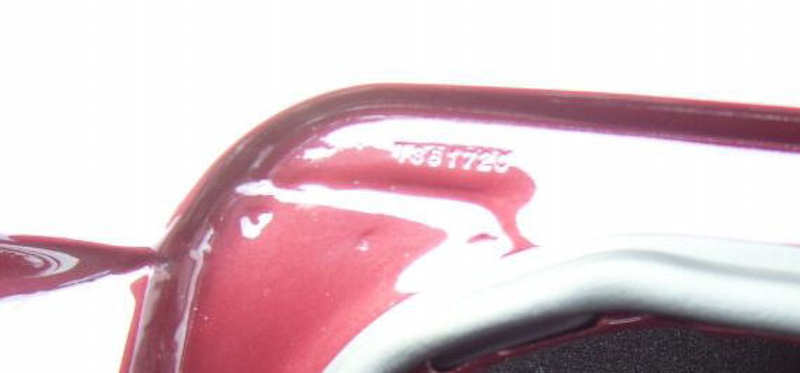
Found along the inner lip of the rear quarter panel, not actually a partial VIN but believed to be associated with the series/model ID due to differences between the Malibu and SS 396 rear quarter panel piercing for emblem placement. This stamped number is located on the rear quarter panel where the trunk lid meets the body next to the weather stripping material. While both 136xxxx stampings have been found on SS 396 and non-SS 396 Chevelles and 138xxxx stampings have been found on SS 396 and non-SS 396 Chevelles, those cases are rare and could be attributed to many things such as panel replacement from another Chevelle or an incorrect panel pulled during the body assembly. The series/model identification is followed by another 2-digit number. These two digits indicate the calendar week the panel was stamped. (Courtesy Jeff Helms)
Caveat: Numerous original cars have been reported with the 'wrong' 136xx vs. 138xx stamping. Whether this was due to poor quality control, inattention by the workers, or panels stacked in the wrong location is not known.
Say you saw it here on © ChevelleWorld
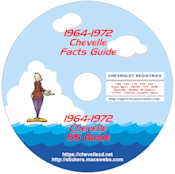
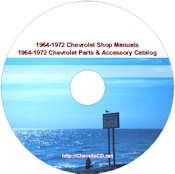
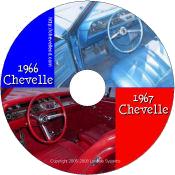
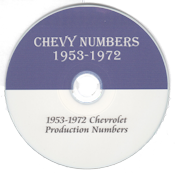
Want more in-depth information on 1964-1972 Chevelles? My Facts and SS Guide
program
CD, 1966/1967 Reference program CD, my Shop Manuals & Parts Catalog
program
DVD, and my Chevy Numbers program CD. Check them and other informative CDs at my
https://chevellecd.net website.

 1964 Chevelle
1964 Chevelle 1965 Chevelle
1965 Chevelle 1966 Chevelle
1966 Chevelle 1967 Chevelle
1967 Chevelle 1968 Chevelle
1968 Chevelle 1969 Chevelle
1969 Chevelle 1970 Chevelle
1970 Chevelle 1971 Chevelle
1971 Chevelle 1972 Chevelle
1972 Chevelle








